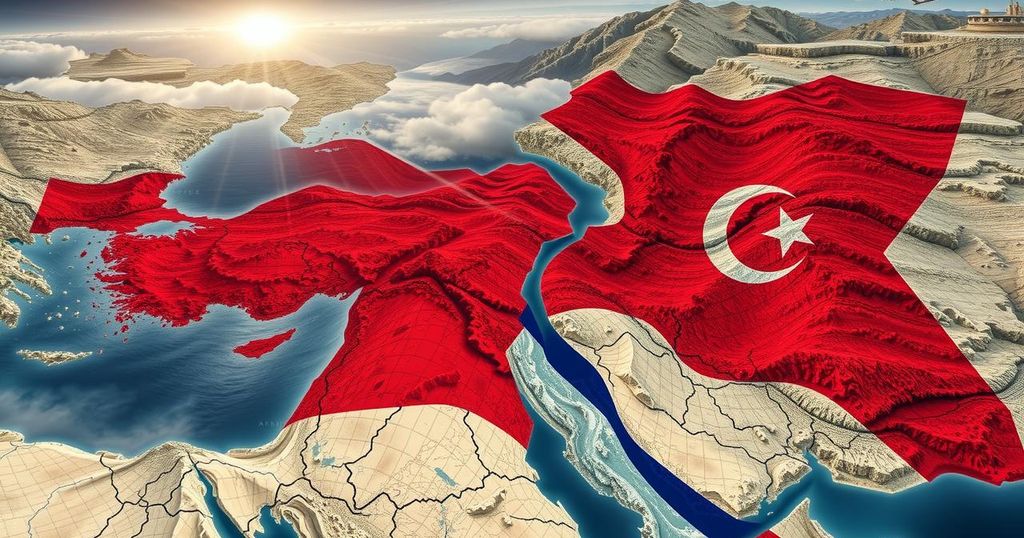Israel and Turkey’s Strategic Maneuvers in Post-Assad Syria
The fall of Assad has prompted Israel and Turkey to rapidly assert their influence in Syria, with Israel moving troops into buffer zones to prevent extremist groups from gaining power, while Turkey aims to counter Kurdish forces through military advances in the north. Both nations are seeking to shape a new political landscape in Syria reflective of their security and territorial interests.
The recent ousting of Syrian President Bashar Assad has catalyzed significant changes in the region, particularly along Syria’s borders with Israel and Turkey. Israel has swiftly moved troops into a buffer zone, asserting control in response to fears of extremist groups filling the power vacuum left by Assad’s departure. Prime Minister Benjamin Netanyahu has articulated that Israel will not allow jihadist factions to threaten its security. The Israeli Defense Forces’ movements aim to establish a temporary security zone until a new Syrian administration emerges, potentially under the leadership of Hayat Tahrir Al-Sham, previously affiliated with Al-Qaeda.
Concurrently, Turkey is aggressively asserting its influence over northern Syria, with President Recep Tayyip Erdogan focusing on countering Kurdish forces linked to the PKK, which has historically sought autonomy within Turkey. The Syrian National Army, backed by Ankara, has recently gained ground against Kurdish forces, indicating Turkey’s strategic ambitions to create a buffer zone along its border. Though Erdogan’s overarching aim remains complex, it includes the stabilization of a region from which Turkey has faced security threats.
The Golan Heights, under Israeli control since the 1967 war, is another region experiencing strategic reassessment. Israel has controlled two-thirds of this territory, which provides a critical vantage point for monitoring southern Syria. Given the area’s agricultural significance and water resources, local communities, particularly the Druze residents, express cautious optimism regarding Israeli military actions, hoping for a secure future while being wary of radical leadership coming to power.
Diplomatic channels remain active, as evidenced by Turkish Foreign Minister Hakan Fidan’s remarks highlighting Turkey’s intention to support a legitimate governance structure in Syria. Amidst this, Turkey is motivated by its role as host to millions of Syrian refugees and has a vested interest in shaping Syria’s political landscape for postwar reconstruction efforts, which could enhance its economic prospects while bolstering Erdogan’s standing both domestically and internationally.
The geopolitical dynamics in Syria have significantly shifted following the recent upheaval in its leadership. The overthrow of Bashar Assad has opened the door for both Israel and Turkey to reposition themselves strategically along their borders. Israel’s immediate military actions reflect its longstanding concerns regarding security threats from extremist groups, particularly those affiliated with Iran. Conversely, Turkey’s ambitions in northern Syria are motivated by the need to counter Kurdish autonomy while expanding its influence over the region. Both nations are actively seeking to mold a post-Assad Syria that aligns with their respective national interests and security considerations.
In conclusion, the changing landscape of Syria following the fall of Assad presents pivotal opportunities and challenges for both Israel and Turkey. Israel is focused on establishing a secure buffer against terror groups, while Turkey seeks to assert greater control to manage its northern borders and the Kurdish militancy issue. As these nations navigate complex geopolitical interests, their actions will continue to significantly influence the future stability and governance of Syria, as well as the broader Middle Eastern region.
Original Source: www.jpost.com




Post Comment